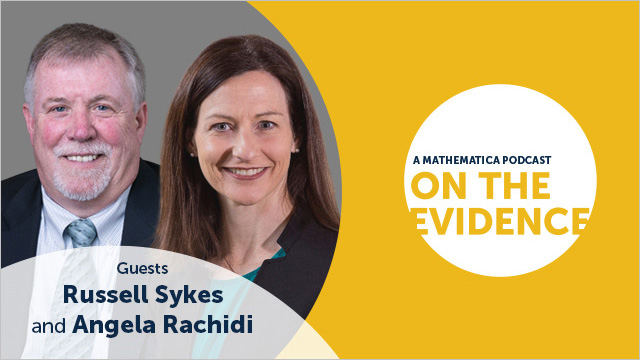Mothers with children ages birth to 3 years who worked both standard- and nonstandard-hour work schedules following the birth of their child experienced more child care instability than those who worked only one type of schedule during those early years, according to a new report from Mathematica and the American Public Human Services Association (APHSA). The report, funded by the Robert Wood Johnson Foundation (RWJF), found that this increased instability was linked to behavioral problems for their children—such as more conflict with others or trouble with authority—and suggested that these outcomes could be mitigated through increased stability of child care arrangements, and possibly facilitated by greater access to subsidized child care.
Authors of the report, “The New Economy and Child Care: Nonstandard-Hour Work, Child Care, and Child Health and Well-Being,” surveyed 34 state child care administrators, conducted in-depth interviews with 13 of them, and analyzed longitudinal data from the Fragile Families and Child Well-Being (FFCWB) Study, which encompassed nearly 5,000 families with children born in large U.S. cities. Nonstandard work hours—those that do not conform to a traditional 9 a.m. to 5 p.m., Monday-through-Friday schedule—are becoming increasingly common in the United States, with nearly 20 percent of U.S. workers now working nonstandard hours, including 28 to 50 percent of low-income or low-wage hourly workers. The two-year study was conducted as part of RWJF’s effort to explore how changes in the nature of employment in the United States affect health, economic stability, and equity.
"Parents with nonstandard-hour work schedules are crucial to a dynamic labor market, but this study reveals that children's health can suffer when their parents take jobs with different work schedules,” said Angela Rachidi, coauthor of the report. “Child care instability can result when parents change work schedules, with consequences for their children’s health. Policymakers should recognize these dynamics when designing child care assistance programs and try to mitigate instability for these children.”
Public child care assistance programs such as those funded by the Child Care and Development Block Grant (CCDBG)—the nation’s largest federal child care assistance program—can offer a critical safety net for low-income working parents with nonstandard hours by helping them afford quality child care; however, interviews of state child care administrators revealed that more can be done to better help these families, including offering sufficient informal child care options that meet their needs. The study also found that most state child care agencies admittedly do not have a complete picture of the existing supply of child care available during nonstandard work hours or the extent to which that care is subsidized for low-income families.
The report includes a series of recommendations for policymakers to better utilize child care assistance to mitigate any negative effects of work schedules on children’s health, including:
- Dedicate funding to build state data infrastructures that better identify the need for and use of subsidized nonstandard-hour child care.
- If unmet needs exist, increase CCDBG funding to address those needs.
- Investigate the declines in subsidized license-exempt and informal child care providers across states to identify reasons for the reduced supply.
- Explore using refundable income tax credits (such as the child and dependent care tax credit) to increase stability and flexibility in child care assistance to parents who are working nonstandard hours.
“As the economy changes, a growing number of parents are working nonstandard hours—yet the available supply of child care during such hours has not kept pace, and parents struggle to afford what little care is available,” said Russell Sykes, coauthor of the report. “This is a critical issue that policymakers at all levels should prioritize, and the report recommendations offer a road map for increased availability of and access to child care for families who need it the most.”
Media Contacts:
J.B. Wogan, Mathematica, (202) 250-3547
Jessica Garon, APHSA, (202) 682-0100, ext. 223


